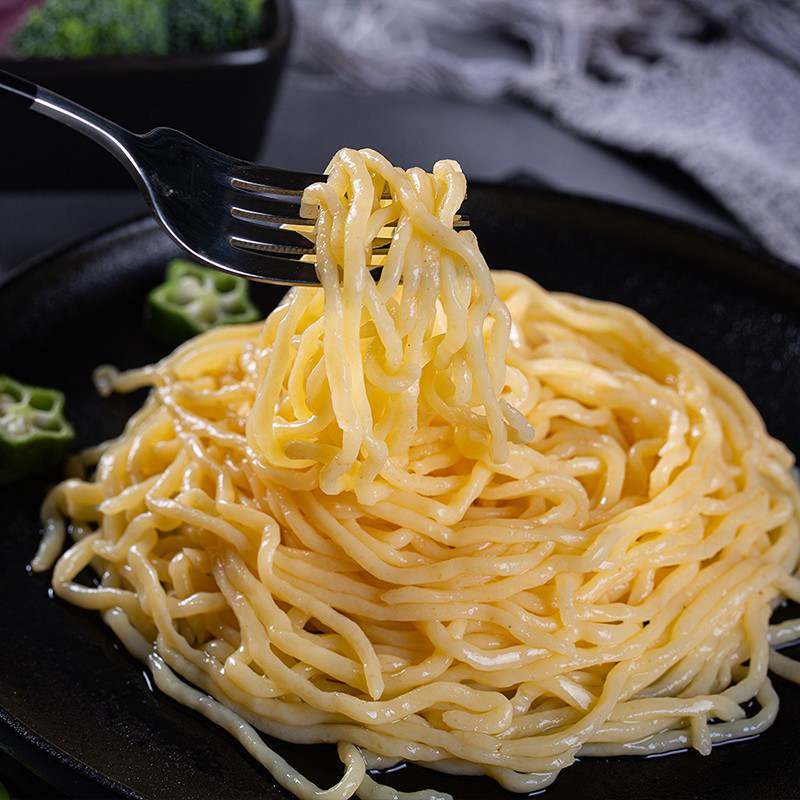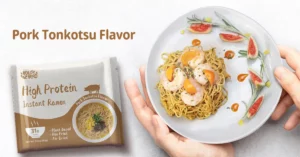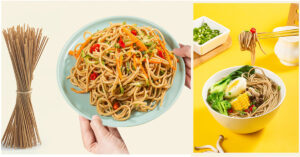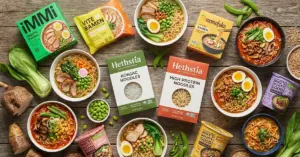The Growing Popularity of Vegan Diets
Veganism has transcended its niche origins to become a mainstream dietary choice. Individuals are increasingly drawn to veganism for its ethical stance against animal exploitation, its reduced environmental footprint, and its potential to promote better health. As more people embrace veganism, there is a growing need for innovative and nutritious plant-based ingredients that can not only meet the nutritional requirements of a vegan diet but also enhance the overall dining experience.
Konjac: A Versatile Plant-Based Superfood
What is Konjac?
Konjac, scientifically known as Amorphophallus konjac, is a plant native to Southeast Asia. It has been a staple in Asian cuisines for centuries and is renowned for its unique composition, primarily consisting of a water-soluble dietary fiber called glucomannan. This remarkable fiber, which makes up a significant portion of the konjac plant, is at the heart of its various benefits.
Nutritional Profile of Konjac
Konjac is prized for its impressive nutritional attributes, particularly for those following vegan diets. Notable features of konjac’s nutritional profile include its low-calorie content, virtually zero fat, and minimal carbohydrates. The star component, glucomannan, is a soluble fiber known for its ability to absorb water and form a gel-like substance in the stomach, creating a feeling of fullness and aiding in weight management.
Culinary Uses of Konjac
Konjac’s culinary versatility is a key factor behind its growing popularity in plant-based diets. It is commonly processed into various forms, such as konjac noodles (shirataki noodles), rice, and even flour. These products are readily available and can be used in a wide range of dishes, from stir-fries to pasta, soups, and more. Konjac’s mild flavor allows it to absorb the taste of the ingredients it is cooked with, making it a versatile canvas for various flavor profiles.
Sustainability and Environmental Benefits
In addition to its nutritional attributes and culinary adaptability, konjac offers sustainability benefits that align with the eco-conscious principles often associated with vegan diets. The konjac plant is hardy and can thrive in diverse environments, requiring minimal water and resources for cultivation. Its low environmental impact and minimal carbon footprint make it an appealing choice for those seeking sustainable dietary options.
As we proceed through this article, we will delve deeper into the advantages of konjac in supporting a vegan lifestyle, both in terms of health and culinary exploration. Konjac’s unique properties make it a valuable addition to plant-based diets, addressing specific challenges and offering exciting opportunities for those on their vegan journey.
Resolving Pain Points in Vegan Diets with Konjac
Vegan diets come with numerous health benefits, but they can also pose specific challenges related to nutrition and meal satisfaction. Konjac, with its exceptional properties, can effectively address several of these pain points, making it a valuable ally for individuals following a plant-based lifestyle.
Meeting Fiber Requirements
One common concern in vegan diets is ensuring an adequate intake of dietary fiber. Fiber is crucial for digestive health, weight management, and blood sugar control. Konjac’s glucomannan fiber content is exceptionally high, making it an excellent way for vegans to meet their fiber requirements. Consuming konjac noodles, for example, can significantly boost daily fiber intake, promoting regular bowel movements and supporting a healthy gut.
Low-Carb, Keto-Friendly Options
For vegans following low-carb or ketogenic diets, finding suitable food options can be challenging due to the prevalence of starchy plant foods. Konjac, being virtually carb-free, provides an ideal solution. It allows individuals to enjoy pasta-like dishes without the carbohydrate load, making it a keto-friendly alternative for those looking to manage their carb intake while staying vegan.
Gluten-Free and Allergen-Free Benefits
Many vegans also choose to avoid gluten or have gluten sensitivities or allergies. Konjac noodles and rice are naturally gluten-free, making them an excellent choice for individuals with dietary restrictions. Additionally, konjac is not a common allergen, making it a safe option for those with food allergies or intolerances.
Combating Cravings and Promoting Weight Loss
One of the challenges faced by some vegans is dealing with cravings and achieving a sense of fullness in their meals. Konjac’s glucomannan fiber is known for its ability to expand in the stomach, creating a sensation of satiety. This can be particularly helpful for vegans who want to manage their weight or avoid overeating.
Convenient and Easy Meal Preparation
Konjac products, such as pre-packaged noodles or rice, are incredibly convenient for quick and easy meal preparation. They require minimal cooking time and can be used in a variety of dishes, from salads to soups to Asian-inspired stir-fries. This convenience can be a significant relief for busy individuals or those transitioning to a vegan diet.
As we continue to explore the benefits and uses of konjac in vegan diets, you’ll discover practical tips on how to incorporate this versatile ingredient into your daily meals. Whether you’re looking to boost your fiber intake, adhere to specific dietary restrictions, or simply enjoy satisfying and nutritious vegan dishes, konjac has the potential to address these pain points and elevate your plant-based culinary experience.
Incorporating Konjac into Your Vegan Lifestyle
A. Konjac-Based Products and Where to Find Them
Incorporating konjac into your vegan diet is relatively straightforward, thanks to the availability of various konjac-based products. Konjac noodles, rice, and flour can typically be found in health food stores, Asian markets, or ordered online. Many brands offer convenient and ready-to-use options, making it accessible for both novice and experienced vegan cooks.
B. Cooking with Konjac: Tips and Recipes
Cooking with konjac is a breeze, but there are a few tips to keep in mind. Since konjac products are typically packaged in a liquid, it’s essential to rinse them thoroughly under running water before use to remove any residual odor. Once rinsed, they can be used in a wide array of recipes. For example, konjac noodles can be stir-fried with vegetables and your favorite sauce for a quick and satisfying meal. Konjac rice can replace traditional rice in dishes like fried rice or sushi rolls.
C. Konjac Supplements and Cooking Aids
If you’re interested in the potential health benefits of konjac but don’t want to alter your diet significantly, konjac supplements are available in various forms, including capsules and powders. These supplements can provide a convenient way to incorporate konjac’s fiber into your daily routine.
D. Sustainable Konjac Sourcing and Considerations
For those concerned about the environmental impact of their food choices, it’s worth considering the source of konjac products. Look for brands that prioritize sustainable and responsible sourcing practices. Sustainable konjac cultivation ensures that this superfood remains an eco-friendly choice for vegans and environmentally conscious consumers.
Conclusion
In conclusion, konjac is a remarkable and versatile superfood that offers numerous benefits for individuals following a vegan diet. Its high fiber content helps meet dietary requirements, particularly for fiber, without adding unnecessary calories or carbs. Additionally, it addresses common dietary challenges faced by vegans, such as gluten restrictions and cravings, while also providing a convenient and quick meal solution.
Whether you’re looking to enhance your nutritional profile, explore new culinary possibilities, or simply enjoy satisfying vegan meals, konjac can be a valuable addition to your plant-based lifestyle. As veganism continues to gain momentum as a health-conscious and environmentally friendly choice, konjac stands out as an ingredient that not only supports this lifestyle but also enriches it, offering solutions to dietary challenges and promoting a more sustainable and fulfilling way of eating. Consider incorporating konjac into your vegan journey to experience its transformative benefits firsthand.






